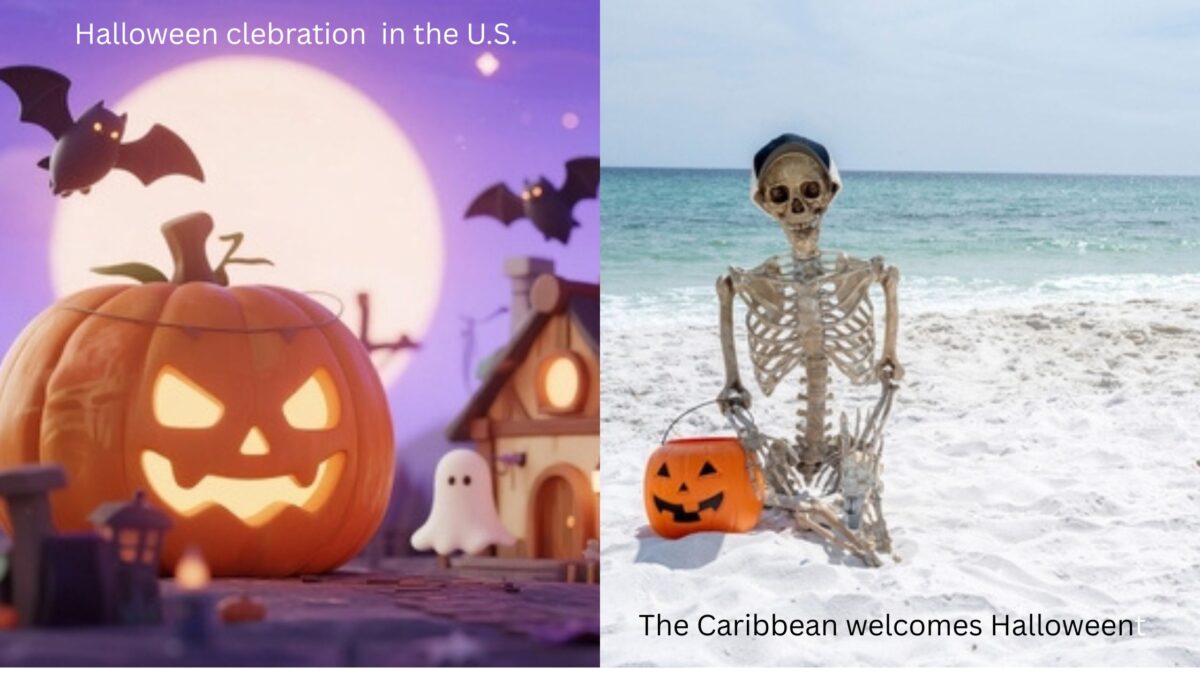From Foreign Concept to Island Tradition: Halloween’s Journey Through the Caribbean
October 31, 2025 Caribbean Culture
When I first arrived in the United States in 1978, Halloween was completely foreign to me. Growing up in the Caribbean, October 31st was just another day—no jack-o’-lanterns, no costumes, no candy. Fast forward to today, and Halloween has become a vibrant, commercialized celebration throughout the Caribbean, with costume parties, themed events, and all the commercial trappings of this once-alien holiday.
What Is Halloween?
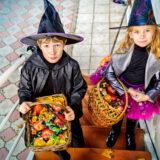
Halloween traces back over 2,000 years to the Celtic festival of Samhain, when ancient peoples believed the boundary between the living and dead grew thin. Irish immigrants brought these traditions to America in the 19th century, where trick-or-treating emerged in the 1930s-40s. Today, Halloween ranks as America’s second-largest commercial holiday after Christmas. But how did this thoroughly American celebration reach Caribbean shores?
Tourism Opens the Door
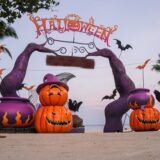
The transformation began in the 1980s when air travel became affordable for middle-class North Americans. Mass tourism to the Caribbean exploded, with large-scale cruise tourism becoming commonplace by the 1990s. Hotels and resorts, eager to satisfy their predominantly North American clientele, started hosting Halloween parties and themed events.
But it wasn’t just tourism. Caribbean islands have always maintained strong ties to the United States, with many Caribbean nationals living abroad and sending cultural influences back home. Hollywood movies and American television shows constantly depicted Halloween celebrations, making the once-foreign holiday increasingly familiar to young Caribbeans.
Caribbean-Style Halloween Emerges
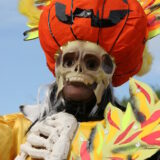
By the early 2000s, Halloween had evolved from an occasional resort activity into a genuine cultural phenomenon. What makes Caribbean Halloween unique is how it has been adapted to island character. Unlike cold autumn nights with falling leaves, Caribbean Halloween happens under tropical skies with a carnival-like energy.
The most fascinating aspect? Caribbean Halloween celebrations now incorporate local folklore like the Soucouyant (a shape-shifting witch), La Diablesse (a spectral she-devil), and Jumbies (mischievous spirits). Historic sites offer ghost tours blending colonial history with supernatural lore—Jamaica’s Rose Hall Great House and Puerto Rico’s Old San Juan forts have become Halloween destinations.
The commercialization is unmistakable. Stores stock Halloween merchandise, bars host premium-priced events, and social media showcases elaborate island parties that rival Carnival celebrations in some locations.
The Cultural Debate
Not everyone welcomes this transformation. Some view Halloween as American cultural imperialism—an unwanted consumerist import displacing authentic Caribbean traditions. In a heavily Christian region, pockets of resistance see the holiday as celebrating darkness.
Yet many Caribbeans, especially younger generations, have embraced Halloween enthusiastically. For them, it’s not about abandoning Caribbean culture but adding another celebration—one more excuse for creativity and community gathering. The incorporation of Caribbean folklore makes it feel less like cultural colonization and more like cultural fusion.
A Complete Transformation
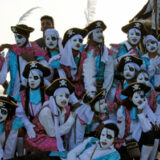
The contrast between 1978 and 2025 is stark. What was once unknown has become established. Children in many Caribbean territories now experience Halloween with school parties, costume parades, and trick-or-treating in hotels and gated communities.
Halloween’s journey from foreign concept to Caribbean tradition exemplifies how globalization reshapes cultural practices. Is a tradition less valid because it was imported? Does commercialization diminish meaning? Can borrowed practices become genuine?
Perhaps the most balanced perspective recognizes both losses and gains. Caribbean Halloween isn’t simply American Halloween transplanted—it’s Caribbean Halloween, with its own flavor, incorporating local legends, happening under tropical skies, and celebrated with characteristic island energy.
For those of us who remember when Halloween was completely foreign to Caribbean shores, watching October 31st become an island tradition has been remarkable. Culture is never static—it evolves, adapts, and sometimes adopts practices from elsewhere, transforming them in the process.

